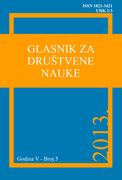Uloga i znaĉaj MMF-a u razvoju ekonomija u tranziciji
The role and importance of the IMF in developing economies in transition
Author(s): Miodrag Paspalj, Jovan Marković, Dušica KarićSubject(s): Economy
Published by: АЛФА БК УНИВЕРЗИТЕТ
Keywords: stand-by arrangement; policy conditionality; financial crisis, economic growth
Summary/Abstract: During the eighties and nineties, the International Monetary Fund (IMF) and World Bank (WB) imposed extensively structural changes on emerging and transition economies. Conditionality regarded loan approval and also their success in the implementation of structural adjustment programs aimed at countries being efficient and competitive in the global environment. The real purpose of these arrangements was that the countries in transition and developing countries allow entry of foreign investors. This was achieved by imposing free-market measures, including privatization of state-owned enterprises, removal of restrictions on foreign investors, removal of import barriers and the like. The original objective of the International Monetary Fund and other similar financial institutions was to preserve global financial stability by regulating the so far unregulated global financial markets as well as to prevent the emergence of crises and intervene in case they should emerge.
Journal: Glasnik za društvene nauke
- Issue Year: 2013
- Issue No: 5
- Page Range: 159-168
- Page Count: 10
- Language: Serbian

